|
|
|
|
|
|
|
|
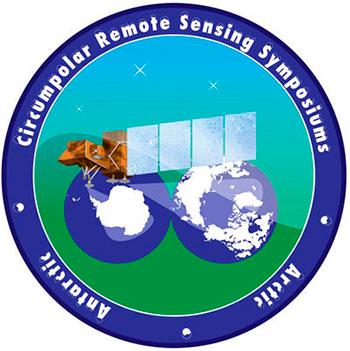
Arctic Ambitions, September 11-12, 2018 (Anchorage, Alaska USA). WTC Anchorage launched the Arctic Ambitions Conference in 2011 in response to growing interest by Alaskan companies, and companies from around the world, in opportunities now, and in the future, for commercial development in the Arctic. At Arctic Ambitions VII, WTC Anchorage will outline its concept for positioning Alaska as an Arctic center for international business. This year's event will feature two special panels: Asia in the Arctic and Alaskan Native Corporations in the Arctic.
|
Media
Russia Can Resume Licensing of Arctic Offshore Areas- Regulator. The Russian government and the State Duma are viewing a draft law making possible to resume licensing of offshore areas in Arctic Russia, head of the Federal Agency for Mineral Resources (Rosnedra) Evgeny Kiselev told TASS on the sidelines of the Eastern Economic Forum on Tuesday. "Licensing was suspended. Not merely for Koryakiya [Koryakiya-1 area that can be the first to be presented at the auction between Gazprom and Rosneft - TASS]. The problem was systemic by nature. The bill is aimed at resolving it. I hope it will pass the State Duma and all the issues will be settled. It [the bill - TASS] is reviewed by the government and the State Duma," the official said. TASS
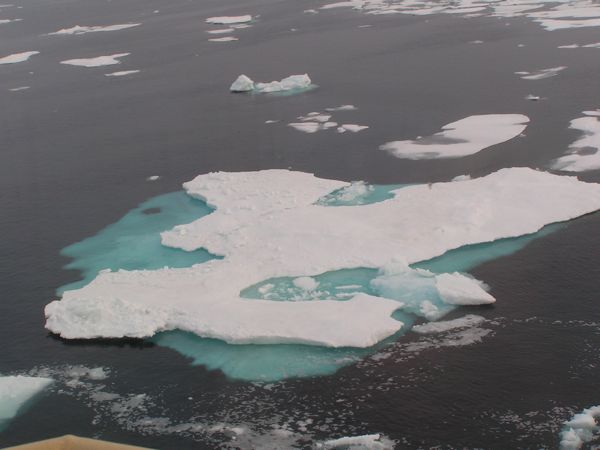 Yale Researchers Find More Evidence for Global Warming. Yale Researchers Find More Evidence for Global Warming. A new joint study of the Arctic Ocean administered by Yale and the Woods Hole Oceanographic Institute provides more evidence for global warming and its ominous consequences. For three decades, researchers in Yale's Department of Geology and Geophysics, as well as those in the Woods Hole Department of Physical Oceanography, measured the temperature and salt content of the Beaufort Gyre, a region north of Canada known for its fresh water and heat absorption. What they found was startling: Not only did the heat content of the region almost double, but the amount of heat that the surface waters absorbed also quintupled between 1987 and 2017. Yale Daily News
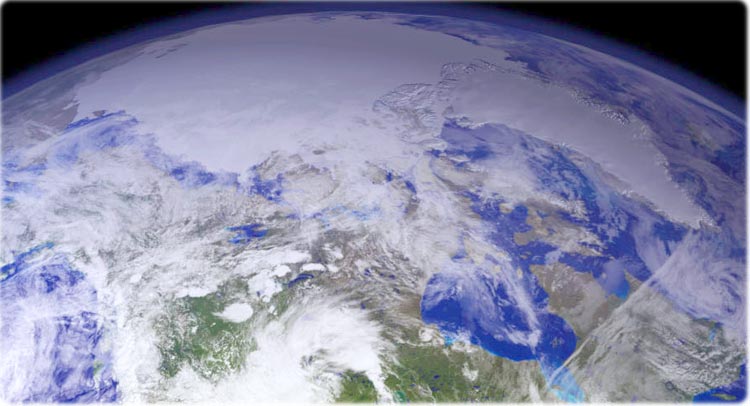 Weathernews Releases 'Arctic Ocean Sea Ice Trends 2018.' Weathernews Releases 'Arctic Ocean Sea Ice Trends 2018.' Weathernews Inc. Global Ice Center has announced the prediction of sea ice trends in the Arctic Ocean for 2018. This summer, the Northwestern Passage (Canadian side) is likely to open in mid-September, whereas Northeastern Passage of the Arctic Ocean (Russian side) has already opened in late August. The area of ice extent is melting at about the average rate recorded since 2010, and the minimum ice area is expected to be 4.4 million square kilometers, about the same as last year and the 6th lowest since records began. This year, the transport of liquefied natural gas produced in the Arctic Ocean by specialized ships is gaining momentum, and regular usage of the Arctic Ocean passages is advancing. Weathernews is combining observational results from our own microsatellite "WNISAT-1R" with existing satellite images to more accurately identify the sea ice distribution in the Arctic Ocean, an area with little observational data available, and this enables us to strengthen our support for safe shipping operations. Hellenic Shipping News
Seabed Mining and Polar Operations in the Spotlight at SMM. Deepsea mining, polar research vessels and the challenges and opportunities involved in operating in the Arctic Ocean were the focus of the Offshore Dialogue conference at this year's SMM trade fair in Hamburg. The first session, titled 'The Unknown Oceans', kicked off with Rolls-Royce Marine vice president for hydro and design Einar Vegsund discussing the company's polar research vessels Kronprins Haakon and RRS David Attenborough. The remainder of the session focused on aspects of deepsea mining. Offshore Support Journal
China's First Research Icebreaker Launches in Shanghai. China has launched its first self-built polar icebreaker for scientific investigation purposes from Jiangnan Shipyard in the country's eastern municipality of Shanghai. This polar icebreaker named Xue Long 2, or Snow Dragon 2 in English, represents the world's first polar icebreaker specifically for scientific investigations that adopts both bow and stern directional icebreaking technologies. The vessel is able to sail on 1.5 meter-thick ice surface over a sustained period of time. YiCai Global
|
|
Future Events
 North American Arctic Maritime and Environmental Security Workshop, September 18-20, 2018 (Anchorage, Alaska USA). North American Arctic Maritime and Environmental Security Workshop, September 18-20, 2018 (Anchorage, Alaska USA). The Arctic Domain Awareness Center at the University of Alaska and Trent University, Peterborough Ontario, jointly welcome participants to the North American Arctic Maritime and Environmental Security Workshop, University of Alaska Anchorage, Gorsuch Commons Center. The purpose of the event is to gather Arctic minded experts from government, operators, academics and industry principally from Canada and the U.S. to collaboratively assess security and provide solutions focused on the North American Arctic maritime region, including environmental and human security. The workshop will include plenary panels and breakout discussions to facilitate assessment and identify actions to mitigate risk and improve North American Arctic Maritime and Environmental Security. The "so what" of this workshop, is to build on prior discussions and assessments (much of which is contained in a preparatory Literature Review), and create a framework of actions that policy and decision makers can leverage. For more information, email here.
September NWS Alaska Climate Outlook Briefing, September 21, 2018 (Fairbanks, Alaska USA and via webinar). The tools and techniques for making monthly and season scale climate forecasts are rapidly changing, with the potential to provide useful forecasts at the month and longer range. We will review recent climate conditions around Alaska, review some forecast tools and finish up the Climate Prediction Center's forecast for October and the early winter season. This event is part of the National Oceanic and Atmospheric Administration Science Seminar Series.
Scientific Exploration of the Arctic and North Pacific (SEA-NorP), September 25-27, 2018 (Mt. Hood, Oregon USA). This workshop will include discussion of hypotheses that can be tested by scientific drilling in the region, the technology necessary to achieve those goals, ideal sites for drilling based on existing data, and where additional site survey data is needed. The goal of the workshop organizers is that multiple proposals will be initiated at the workshop, both for full cruise legs and for shorter, targeted expeditions around the following themes: ocean gateways, geohazards, volatile cycling, ice histories at transition zones, biosphere and climate.
The second Arctic Biodiversity Congress is hosted by the Conservation of Arctic Flora and Fauna (CAFF), the biodiversity working group of the Arctic Council, and the Ministry of the Environment, Finland. The second Arctic Biodiversity Congress will build on the success of the first Congress, held in 2014 in Trondheim, Norway, and will bring together scientists, policymakers government officials, Indigenous representatives, Traditional Knowledge holders, industry, non-governmental organizations, and others to promote the conservation and sustainable use of Arctic biodiversity.
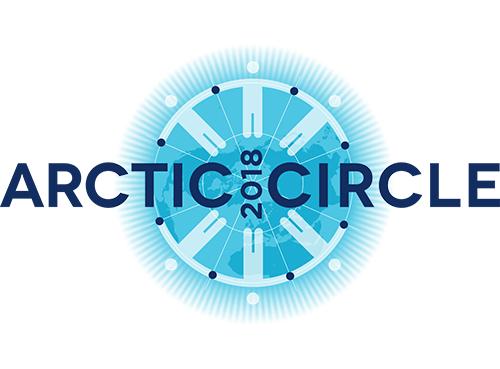 Arctic Circle Assembly, October 2018 (Reykjavik, Iceland). The annual Arctic Circle Assembly is the largest annual international gathering on the Arctic, attended by more than 2000 participants from 60 countries. It is attended by heads of states and governments, ministers, members of parliaments, officials, experts, scientists, entrepreneurs, business leaders, indigenous representatives, environmentalists, students, activists and others from the growing international community of partners and participants interested in the future of the Arctic. Arctic Circle Assembly, October 2018 (Reykjavik, Iceland). The annual Arctic Circle Assembly is the largest annual international gathering on the Arctic, attended by more than 2000 participants from 60 countries. It is attended by heads of states and governments, ministers, members of parliaments, officials, experts, scientists, entrepreneurs, business leaders, indigenous representatives, environmentalists, students, activists and others from the growing international community of partners and participants interested in the future of the Arctic.
Arctic Science Forum Associated with the 2nd Arctic Science Ministerial, October 25, 2018 (Berlin, Germany and via webcast). How vulnerable and how resilient are nature and the people of the Arctic region? How well do we understand the regional and global dynamics which are driving change in the Arctic? What impact will change in the Arctic have on us? These and other questions are the focus of this two-day conference. It will take interdisciplinary research in the Arctic to gain an understanding of past and future processes - a complex and cost-intensive venture. This makes an international network of Arctic research so important for delivering better results. Cooperation in research, the exchange of data, collaborative observation and monitoring schemes - international cooperation is imperative in research on the Arctic.
Only the Science Forum, on October 25th, will be webcast. The Arctic Ministerial, on October 26th, will NOT be webcast.
Maritime & Arctic Security & Safety Conference (MASS18) "Arctic Technology" November 15-16, 2018 (Newfoundland & Labrador Canada). Now in its sixth year, MASS has gained an international reputation as a must-attend event to gain a wide perspective on challenges, opportunities and policies related to the Arctic and North Atlantic maritime environments. The aim of this Government of Canada and the Government of Newfoundland and Labrador supported international conference is to promote stakeholder collaboration, technological innovation, harsh environment research & development, and world-class education efforts that are contributing to both Maritime and Arctic issues. This two day conference will draw a diverse group of speakers and attendees representing government, military, Canadian and U.S. Coast Guard, industry, academic leaders, Northern Leaders, research and other key stakeholders. We hope you can join us to be a part of this important dialogue
American Geophysical Union Fall meeting, December 10-14, 2018 (Washington, DC USA). The AGU 2018 Fall Meeting will mark another dynamic year of discovery in Earth and space science, serve as the advent of AGU's Centennial year, and provide a special opportunity to share our science with world  leaders in Washington, D.C. As the largest Earth and space science gathering in the world, the Fall Meeting places you in the center of a global community of scientists drawn from myriad fields of study whose work protects the health and welfare of people worldwide, spurs innovation, and informs decisions that are critical to the sustainability of the Earth.
ArcticNet: Annual Scientific Meeting 2018, December 10-14, 2018 (Ottawa, ON Canada). Canada's North is experiencing unprecedented change in its sea and terrestrial ice, permafrost and ecosystems under the triple pressures of climate change, industrialization and modernization. The impacts of these pressures can be seen on food and energy security, shipping, sovereignty, northern community health and well-being, and sustainable development and resource exploitation. All these issues have brought the North to the forefront of national and international agendas. Building on the success of its previous Annual Scientific Meetings and International Arctic Change Conferences, the Arctic Network of Centers of Excellence announces the 14th ArcticNet Annual Scientific Meeting.
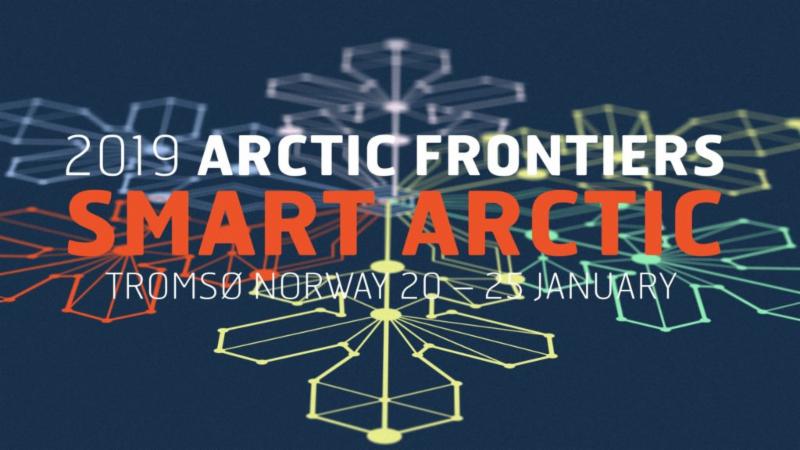 is a global scientific conference on economic, societal, and environmental sustainable growth. This year's theme will be "Smart Arctic," with a pan-arctic emphasis, and an effort to build new partnerships across nations, generations and ethnic groups. Arctic Frontiers provides a forum for dialogue and communication between science, government and industry. The plenary program will have five main sessions: State of the Arctic, Blue Growth, Smart Solutions, Bridging the Gap, and Arctic business prospects. An abstract-driven science program will address Plastics in the Ocean, the Future of Governance and Handling Vulnerability in Arctic Ecosystems, State of the Arctic and A Smart Arctic Future.
 of the AAG includes over 8,500 geographers converging from the U.S., Canada, and nearly 60 other countries in a typical year including geographers, GIS specialists, environmental scientists, and other leaders for the latest in research and applications in geography, sustainability, and GIScience. of the AAG includes over 8,500 geographers converging from the U.S., Canada, and nearly 60 other countries in a typical year including geographers, GIS specialists, environmental scientists, and other leaders for the latest in research and applications in geography, sustainability, and GIScience.
|
|

  
4350 N. Fairfax Drive, Suite 510
Arlington, VA 22203, USA
External links in this publication, and on the USARC's World Wide Web site ( www.arctic.gov) do not constitute endorsement by the US Arctic Research Commission of external Web sites or the information, products or services contained therein. For other than authorized activities, the USARC does not exercise any editorial control over the information you may find at these locations. These links are provided consistent with the stated purpose of this newsletter and the USARC Web site.
|
|
|
|
|
|
|
|
|
 Yale Researchers Find More Evidence for Global Warming. A new joint study of the Arctic Ocean administered by Yale and the Woods Hole Oceanographic Institute provides more evidence for global warming and its ominous consequences. For three decades, researchers in Yale's Department of Geology and Geophysics, as well as those in the Woods Hole Department of Physical Oceanography, measured the temperature and salt content of the Beaufort Gyre, a region north of Canada known for its fresh water and heat absorption. What they found was startling: Not only did the heat content of the region almost double, but the amount of heat that the surface waters absorbed also quintupled between 1987 and 2017. Yale Daily News
Yale Researchers Find More Evidence for Global Warming. A new joint study of the Arctic Ocean administered by Yale and the Woods Hole Oceanographic Institute provides more evidence for global warming and its ominous consequences. For three decades, researchers in Yale's Department of Geology and Geophysics, as well as those in the Woods Hole Department of Physical Oceanography, measured the temperature and salt content of the Beaufort Gyre, a region north of Canada known for its fresh water and heat absorption. What they found was startling: Not only did the heat content of the region almost double, but the amount of heat that the surface waters absorbed also quintupled between 1987 and 2017. Yale Daily News Weathernews Releases 'Arctic Ocean Sea Ice Trends 2018.' Weathernews Inc. Global Ice Center has announced the prediction of sea ice trends in the Arctic Ocean for 2018. This summer, the Northwestern Passage (Canadian side) is likely to open in mid-September, whereas Northeastern Passage of the Arctic Ocean (Russian side) has already opened in late August. The area of ice extent is melting at about the average rate recorded since 2010, and the minimum ice area is expected to be 4.4 million square kilometers, about the same as last year and the 6th lowest since records began. This year, the transport of liquefied natural gas produced in the Arctic Ocean by specialized ships is gaining momentum, and regular usage of the Arctic Ocean passages is advancing. Weathernews is combining observational results from our own microsatellite "WNISAT-1R" with existing satellite images to more accurately identify the sea ice distribution in the Arctic Ocean, an area with little observational data available, and this enables us to strengthen our support for safe shipping operations. Hellenic Shipping News
Weathernews Releases 'Arctic Ocean Sea Ice Trends 2018.' Weathernews Inc. Global Ice Center has announced the prediction of sea ice trends in the Arctic Ocean for 2018. This summer, the Northwestern Passage (Canadian side) is likely to open in mid-September, whereas Northeastern Passage of the Arctic Ocean (Russian side) has already opened in late August. The area of ice extent is melting at about the average rate recorded since 2010, and the minimum ice area is expected to be 4.4 million square kilometers, about the same as last year and the 6th lowest since records began. This year, the transport of liquefied natural gas produced in the Arctic Ocean by specialized ships is gaining momentum, and regular usage of the Arctic Ocean passages is advancing. Weathernews is combining observational results from our own microsatellite "WNISAT-1R" with existing satellite images to more accurately identify the sea ice distribution in the Arctic Ocean, an area with little observational data available, and this enables us to strengthen our support for safe shipping operations. Hellenic Shipping News



